Prof Nandini Sahu, Founder-Vice Chancellor of Hindi University— presently, one of the youngest in West Bengal—discusses her vision and future, exclusively for Different Truths, bridging tradition and modernity in her interdisciplinary work.
Prof Nandini Sahu, Vice Chancellor of Hindi University, West Bengal, and an Amazon bestselling author, is a prominent voice in contemporary Indian English literature. She earned her doctorate in English literature under the guidance of the late Prof. Niranjan Mohanty of Visva Bharati, Santiniketan. Her work has been published extensively in India, the USA, the UK, Africa, Italy, Australia, and Pakistan.
A triple gold medallist in English literature, Prof Sahu received a Gold Medal from the Vice-President of India in 2019 for her contributions to English Studies in India. She is also the recipient of the prestigious Michael Madhusudan Academy Award (2024) and a Lifetime Achievement Award (SAFE, 2024).
Prof. Sahu has authored and edited twenty-one books, including The Other Voice, Recollection as Redemption, The Post-Modernist Delegation to English Language Teaching, The Post Colonial Space: Writing the Self and the Nation, Silver Poems on My Lips, Folklore and the Alternative Modernities (Vols. I & II), Sukamaa and Other Poems, Suvarnarekha, Sita (A Poem), Dynamics of Children’s Literature, Zero Point, Selected Poems of Nandini Sahu (Winter 2020 & Spring 2021), Re-reading Jayanta Mahapatra, A Song, Half & Half, Shedding the Metaphors, Collected Poems of Nandini Sahu, Collected Poems of Niranjan Mohanty, and Hindu Studies: Foundations and Frameworks.
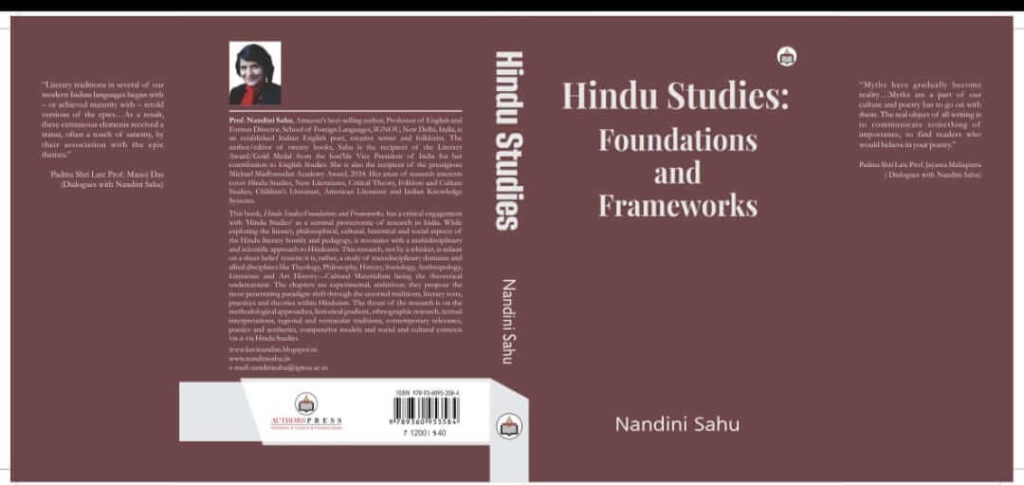
Formerly the Director of the School of Foreign Languages and Professor of English at Indira Gandhi National Open University (IGNOU), New Delhi, she currently serves as Vice Chancellor of Hindi University, West Bengal. Her research interests encompass Indian Literature, New Literatures, Indigenous Knowledge Systems, Hindu Studies, American Literature, Folk Literature, Children’s Literature, and Critical Theory. She is the Chief Editor/Founder Editor of the Interdisciplinary Journal of Literature and Language (IJLL), a bi-annual peer-reviewed journal in English. Prof. Sahu has also designed numerous academic programs for IGNOU and other universities on topics such as Folklore and Culture Studies, American Literature, Postcolonial Literatures, British Poetry, Children’s Literature, and Indian Philosophical Thoughts.
Arindam Roy: Prof Nandini Sahu, you are Amazon’s bestselling author (2022), Professor of English and Former Director, School of Foreign Languages, IGNOU, New Delhi, and a poet, creative writer, and folklorist. You have authored 21 books. An erudite scholar, you were one of the youngest professors in your 30s. Presently, are you one of the youngest Vice-Chancellors in West Bengal? You have been multitasking many roles, juggling various hats. Tell us about your career milestones and time management.
Prof. Nandini Sahu: Thank you for your kind words, Arindam ji! Before I answer your question, I must tell you that I cherish my long-standing relationship with your journal. You have been doing seminal work to promote art and culture. About your question, yes, my journey has been one of passion, purpose and perseverance. Starting as a poet and creative writer, I always believed that literature has the power to transform lives, and that belief shaped my academic and professional milestones. I have always believed in Witness Literature.
I began my teaching career in my 20s, and by my mid-30s, I had the honour of becoming one of the youngest professors. My tenure at IGNOU as the Director of the School of Foreign Languages was a particularly enriching phase, where I explored deeply into academia and administration, learning the nuances and skills of management. Over the years, I authored/edited 21 books, ranging from poetry, fiction, English Studies to Folklore Studies, which reflect my love for storytelling, tradition and cultural narratives. Being recognised as Amazon’s bestselling author in 2022 was both humbling and heartening, reaffirming my belief in the enduring relevance of literature. Becoming one of the youngest Vice-Chancellors, presently, in West Bengal, —has been an immensely humbling milestone in my career. It is both a challenge and a privilege to shape the future of education, foster inclusivity and mentor the next generation.
As for multitasking, respect for time has always been a foundation of my life. My friends tell me, “You are disgustingly punctual.” (Haha) I believe in setting clear priorities every single day and then, aligning my daily tasks with long-term goals. Early mornings and late evenings are my sacred hours for reading and writing, as that’s when creativity flows best. Throughout the day, I compartmentalise my roles as an academic, teacher, administrator, writer and mother, ensuring each part receives my complete attention. Delegation and collaboration are critical too—I believe in empowering people around me, whether it’s in academia or private life. I disseminate power and responsibilities.
Above all, I find inspiration in my work and the people I interact with. Juggling multiple hats can be overwhelming, but when you love what you do and see it making a difference, it becomes fulfilling. My journey continues to be driven by a deep sense of responsibility and passion for education, literature and cultural preservation.
Becoming a Vice-Chancellor comes with immense responsibility, but I see it as a privilege to contribute to shaping the future of education, fostering inclusivity and mentoring the next generation of learners and leaders. My journey has been all about a collaboration between literature, teaching and leadership into an alternative narrative of feminism—or call it ‘ecofeminism’. And I believe there’s much more to create, learn and give back as I embrace this incredible journey.
AR: As the Founder-Vice Chancellor of Hindi University, Kolkata, you have immense challenges and opportunities. What will be your roadmap as a pioneer?
NS: I understand there were a couple of In-charge Vice Chancellors before me, and they had been doing well. As the Founder-Vice Chancellor (the first regular VC) of Hindi University, I am aware of the immense responsibility and unique opportunity of this pioneering role. Establishing a new institution is both a challenge and a privilege, and my roadmap focuses on creating a robust foundation for the university to thrive academically, culturally and administratively.
“My primary goal is to develop a curriculum that is contemporary, inclusive and multidisciplinary, rooted in the rich tradition of Hindi and other Bhasha literatures…”
My primary goal is to develop a curriculum that is contemporary, inclusive and multidisciplinary, rooted in the rich tradition of Hindi and other Bhasha literatures while addressing the demands of the modern world. We aim to blend traditional wisdom with cutting-edge research in humanities, sciences and vocational studies. Establishing centres of excellence for research, Translation Studies, Comparative Literature, and World literatures, in the digital age will be a priority. It is crucial to foster a sense of linguistic harmony in the university. While promoting Hindi, we will celebrate the multilingual and multicultural heritage of India, particularly the rich literary and cultural traditions of Bengal.
In today’s rapidly evolving educational landscape, embracing technology is non-negotiable. From digitising resources and establishing an online repository to incorporating e-learning modules, we aim to make education accessible to students from diverse backgrounds. This will also include initiatives to integrate artificial intelligence and data analytics into language and literary studies. I have the experience of working from/with the margins and the subaltern as I come from IGNOU, the world’s largest University, with the most inclusive and flexible pattern of education. Special attention will be given to empowering marginalised communities, particularly women and economically disadvantaged students, through support programs.
“I will focus on building a team of committed educators and staff who share the vision of the university.”
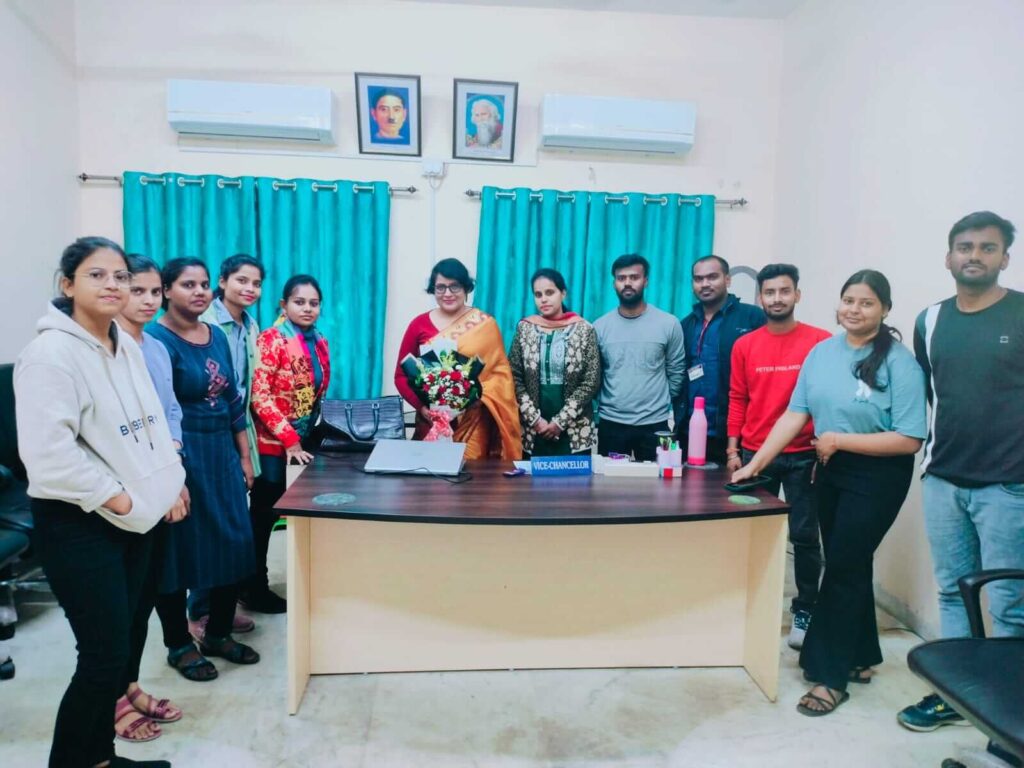
Beyond classroom learning, we will focus on hands-on training, internships and exposure to real-world applications We will emphasise original and impactful research in areas while creating partnerships with national and international universities, research institutions and cultural organisations. Laying a strong administrative foundation is essential for the long-term success of the university. Transparency, accountability, and sustainability will guide every administrative decision. I will focus on building a team of committed educators and staff who share the vision of the university. Hosting global conferences, literary festivals, and exchange programs will enhance our reach and reputation. Sustainability will be the foundation of the university’s development. From green campuses to energy-efficient systems, the infrastructure will reflect our commitment to environmental responsibility. The journey of building Hindi University is not just about academics; it is about creating a legacy—a space that inspires future generations to explore, innovate and preserve the cultural and linguistic heritage of our nation. While challenges are inevitable, I see them as stepping stones toward achieving a vision of excellence. I am committed to ensuring that Hindi University becomes a beacon of knowledge, inclusivity and innovation.
AR: Your approach as a folklorist and researcher has been interdisciplinary and multi-disciplinary. This is evident in your latest book, Hindu Studies: Foundations and Framework. Please give us a sneak-peek into this book of yours.
NS: Yes, thank you for the kind words. My latest book, Hindu Studies: Foundations and Framework, is a labour of love that brings together my passion for Indian Knowledge Systems, folklore, cultural studies and interdisciplinary research. The book is my humble attempt to explore the pedagogy of Hindu Studies as a cultural, philosophical and literary phenomenon that has shaped human thought and societal structures over millennia. Hinduism is inherently interdisciplinary. Its study requires a blend of disciplines—literature, anthropology, philosophy, linguistics, and cultural studies. I have brought these perspectives together to explore Hinduism’s core principles, such as dharma, karma, moksha, and the interconnectedness of life.
“The interdisciplinary approach has allowed me to link Hindu philosophical texts with their manifestations in folklore, rituals, oral and written traditions…”
The interdisciplinary approach has allowed me to link Hindu philosophical texts with their manifestations in folklore, rituals, oral and written traditions and everyday practices. The book explores how Indian knowledge systems serve as a medium to democratise the sacred texts, Ramayana and Mahabharata etc, bringing them closer to the lives of common people. This connection between folklore and scripture is a recurring theme in the book.
AR: Have you envisioned the various disciplines and departments at Hindi University? We see your works reflect the fluidity of various disciplines and approaches. What are some of the new departments that might combine multi-disciplinary approaches that we see in your works?
NS: Thank you for this insightful question. I have envisioned a dynamic and innovative structure for the university—one that reflects the interdisciplinary and multidisciplinary approaches that are central to my own works.
“The focus will be on comparative literature and translation, fostering dialogue between regional and global literary traditions…”
My vision is to build a university where disciplines do not exist in isolation, but engage in meaningful dialogue, creating fertile ground for innovation, creativity and holistic education. The focus will be on comparative literature and translation, fostering dialogue between regional and global literary traditions, and encouraging research in translation as a tool for cultural preservation and global understanding. As a folklorist, I understand the significance of folklore in shaping a society’s cultural identity. This department will study folk traditions, oral histories and intangible cultural heritage, linking them to broader cultural and social frameworks. It will also investigate how folklore interacts with literature, performing arts, and community practices.
I also think about the Department of Hindi and Digital Humanities. In today’s digital age, it is crucial to blend traditional studies with modern tools. This department may focus on the digital archiving of Hindi texts, computational linguistics, and the application of AI and machine learning in analysing and preserving Hindi literature. It will also explore the role of social media and digital platforms in the dissemination of Hindi.
A department of Gender Studies may emphasise the voices of women and marginalised communities, and this department will explore the intersections of gender, caste, class and language in literature, culture and society.
Also, there can be a Department of Environmental Humanities and Ecocriticism which will be a forward-looking department addressing the urgent challenges of climate change and sustainability.
“…a Department of Creative Writing, Performing Arts and Media Studies will do justice to the vision of the government and integrate traditional art forms with modern media practices…”
Then, perhaps a Department of Creative Writing, Performing Arts and Media Studies will do justice to the vision of the government and integrate traditional art forms with modern media practices, nurturing a new generation of writers and performers who are rooted in Indian culture and are globally conscious and contemporary.
A Department of Indic Studies and Global Interactions may focus on how Indic traditions have shaped global discourses in areas like yoga, spirituality and cultural diplomacy.
A Department of Innovation, Entrepreneurship and Skill Development may focus on developing entrepreneurial skills in areas like publishing, creative industries and digital content creation, especially with a focus on Hindi language and literature.
As of now, I am just thinking aloud before you about my dreams and visions for the university.
AR: Tell us about your works as a poet, particularly, Sita. Also, your short stories and fiction.
NS: My journey as a poet and writer has been deeply intertwined with my explorations of identity, culture, mythology and human emotions. Among all my works, Sita holds a particularly special place in my heart.
“Sita is not just a retelling of a mythological story; it is a re-imagination of one of the most enduring female figures in Indian mythology.”
Sita is not just a retelling of a mythological story; it is a re-imagination of one of the most enduring female figures in Indian mythology. Through this long poem, I sought to give Sita her voice—progressive, independent, eco-feministic, optimistic—one that reflects her strength, her struggles and her perspective. Traditionally, Sita is seen as a symbol of patience and sacrifice, but I wanted to delve deeper into her psyche, exploring her as a multifaceted character, an individual who challenges the constraints of societal expectations while navigating her emotional world. The poem traverses her journey from childhood to her ultimate transcendence, connecting her struggles with those of contemporary women. It’s not just about Sita of the Ramayana but about every woman who seeks dignity, respect and autonomy in a complex and often patriarchal world. Writing Sita was both a personal and creative endeavour and through it, I hoped to bridge the gap between mythology and the modern feminist discourse.
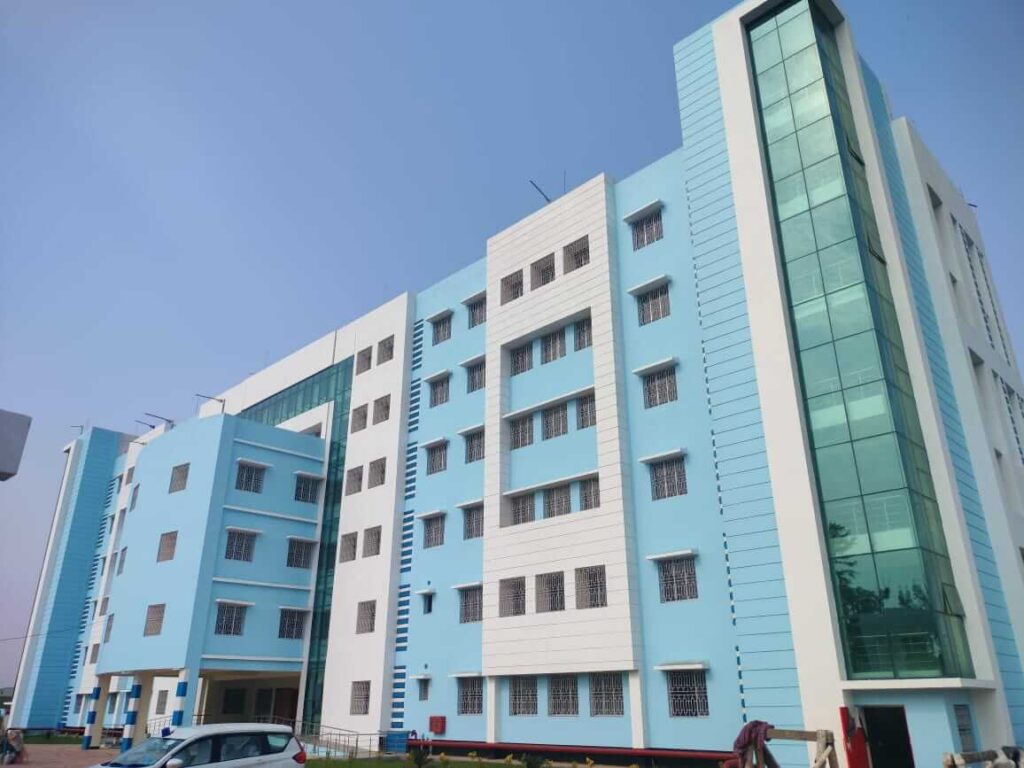
My short stories are an extension of my poetic sensibilities. My story collection Shedding the Metaphors, has been creating ripples among Indian academia. For me, storytelling is about giving a voice to the unheeded, be it women navigating societal constraints, children discovering their identity, or marginalised communities preserving their traditions.
For me, literature is a way to explore the human condition and inspire change, and I am deeply grateful that my readers find my works meaningful. Sita and my other writings are not just stories—they are conversations with my audience, a bridge between worlds, and a celebration of the human spirit.
AR: You have been a part of Different Truths for a long time. We congratulate you in your new role. You have beautifully amalgamated creativity and academics. How will you braid administrative excellence into it, now?
NS: Just as creativity thrives on vision, so does effective administration. My approach to leadership will be rooted in a clear, long-term vision for the institution, a vision that values inclusivity, innovation and academic excellence.
I aim to create an ecosystem where creativity is not confined to poetry or the arts; it can transform administration too. I believe in thinking out of the box to address challenges and create opportunities. My goal is to adopt innovative policies and frameworks that make education dynamic, interdisciplinary and student-centric. As an academic and creative thinker, I have always believed in collaboration. Similarly, in administration, inclusivity will be my guiding principle. I plan to foster an environment of participatory governance where all voices are heard—be it students, faculty or staff. This new role is not just a responsibility; it is an opportunity to translate my creative philosophy into feasible strategies that will shape the future of education. I am humbled about this journey and look forward to making a lasting impact.
AR: Thank you so much, Prof Nandini. I wish you all the very best for your creative writing and administrative responsibilities ahead.
Photos sourced from the interviewee

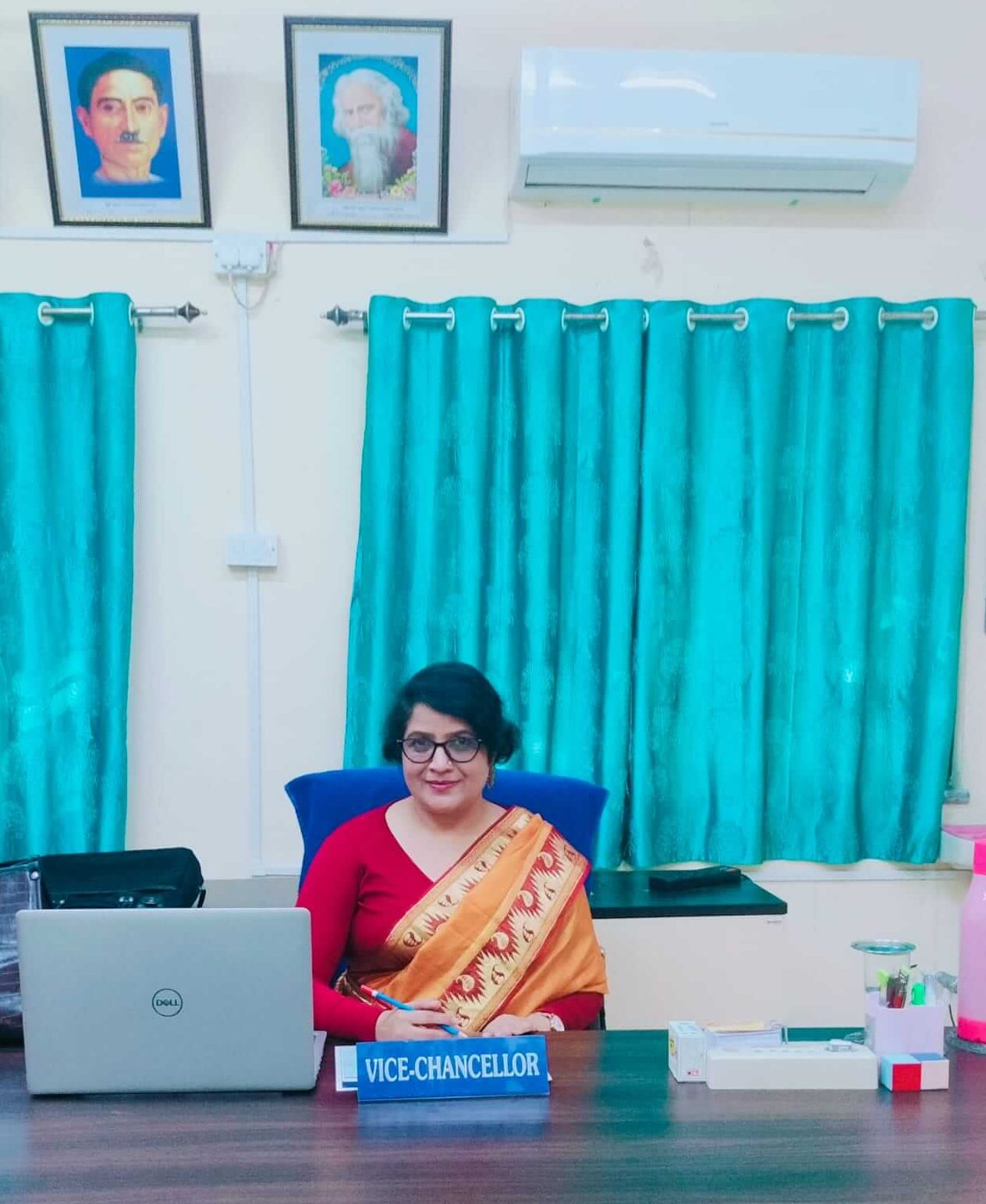



 By
By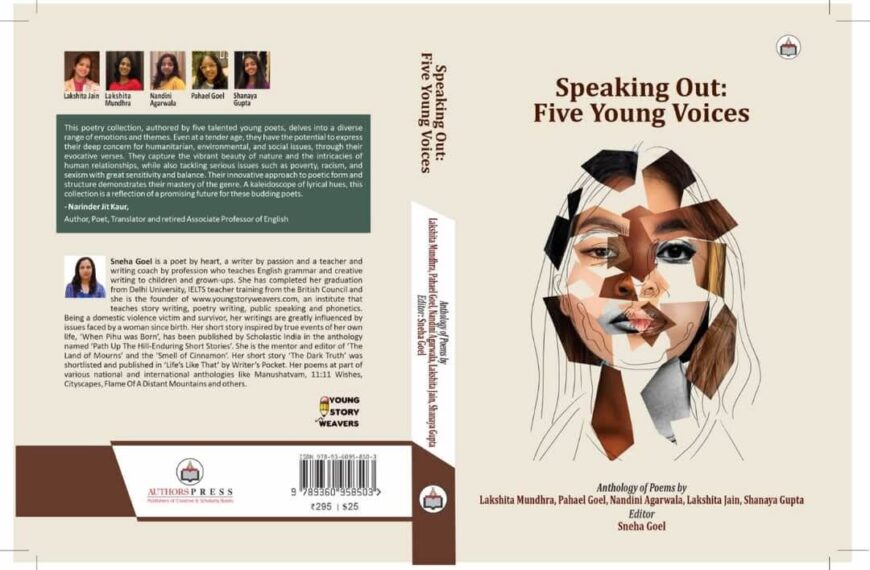
 By
By
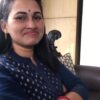 By
By
 By
By
An amazing read. Congratulations and heartfelt thanks to both Prof Nandini Sahu and Shri Arindam Roy da for this wonderful conversation. Your unstinting dedication and commitment to education and literature is commendable. The times ahead are truly exciting. Happy to note the mantle of leadership is in safe hands; with people who are not only responsible, but at the same time visionary.
Thanks for critiquing the interview, Prakash.
I agree with you, the new university is in able hands of a young and dynamic VC, Prof Nandini Sahu.
What an interview! The interviewer has asked intelligent questions and studied the author’s works thoroughly. The interview is interesting, engaging, well – researched and well – presented.
Kudos!
Dr. Purnima
Thank you so much, Dr Purnima.
A very comprehensive interview, covering nearly all major aspects of a literary and academic life
Thank you so much, Shaleen
A great visionary, Professor Nandini Sahu is going to be an asset for the Hindi University. She is throughly an erudite scholar and a true academician.
Best wishes to her.
I am sure that this vision will become a reality. She is a great visionary and a leader par excllence. I wish Hindi University all the success in future and Prof. Nandini Sahu Ma’am a great time ahead. The University will excel in all the areas under her able leadership.
Regards and Best Wishes.
Thank you. I agree with you, Dr Vipan
Excellent, comprehensive interview. To be so accomplished at that age is remarkable. I can only Imagine what lies ahead for her.